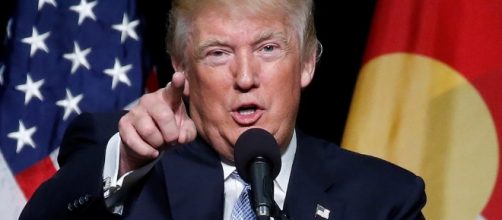When Trump was running for office, he proposed a travel ban to and from many Muslim nations. One of the many things this protocol neglects to consider is the vital role that international physicians play in the US Healthcare System.
International doctors are a major part of present day healthcare
The American Association of Medical College (AAMC) reports that approximately a quarter of the physicians in the United States graduated from an international medical school. They approximate that as many as 6,000 a year travel to the United States under a special type of visa which allows them to complete a medical residency in their chosen specialities.
Dr. Fadel Nammour, a gastroenterologist from Lebanon now serves as the Vice President of the North Dakota Medical Association. He makes it clear that although many physicians are coming to the United States, they are not taking jobs away from American citizens. In a statement to the Washington Post, Nammour says "We are not taking jobs from Americans, we are filling the jobs Americans weren't taking."
For an international graduate hoping to stay and practice in the United States, they have only two options. The first involves going back to the country where they received their medical education and practicing for a minimum period of two years before applying for a visa. The other includes promising to work in underserved areas for a duration of at least three years in exchange for an expedited visa.
These locations are typically rural areas in which access to reliable healthcare is hard to come by. As a result, these immigrant doctors play an extremely important role in provided people with the medical treatment they might otherwise not be able to get.
In the last 15 years, this program has helped an estimated 15,000 internationally trained graduates to practice in underserved communities. Many of the states that have the highest percentage of immigrant physicians are also the ones that helped Trump to get elected. This includes states such as Michigan, West Virginia, Pennsylvania, and Ohio.
Travel ban will make access to healthcare even more difficult
Almost immediately after taking office in January 2017, President Donald Trump issued a travel ban effecting people hoping to travel to and from many Muslim nations.
The affected countries includes Iran, Iraq, Libya, Somalia, Sudan, Syria, and Yemen. It also made immigration significantly more difficult and suspended the federal programs helping Syrian refugees.
According to research by Michael Stepner of Massachusetts Institute of Technology and Matthew Basilico of Harvard University, 14 million doctors appointments are provided yearly by immigrants from the affected nations. These immigrants take on a very important role in the medical industry working in areas such as primary care and locations such as rural America that most US physicians are relcutant to. With the travel ban in place, these physicians face an even greater hurtle to beginning their practice.


